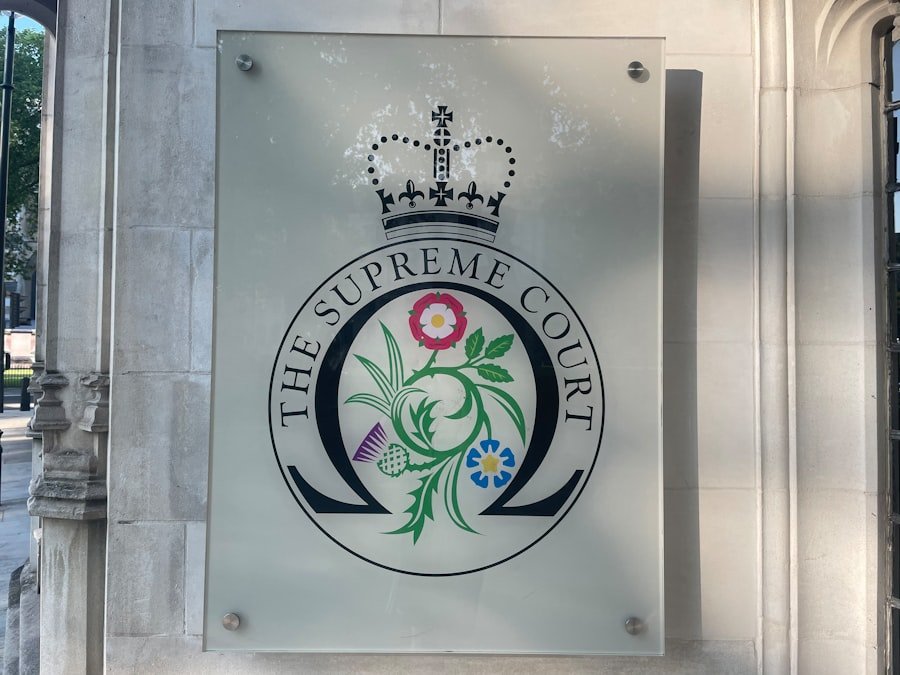Regulatory compliance marketing is a strategic approach to promoting products or services in a way that aligns with industry regulations and standards. This type of marketing is particularly important in the software as a service (SaaS) industry, where data privacy and security regulations are constantly evolving. It involves creating marketing campaigns and content that not only promote the benefits of a SaaS product but also educate users on how the product complies with relevant regulations.
One of the key aspects of regulatory compliance marketing is ensuring that all marketing materials and messaging are accurate and transparent. This means clearly communicating how the SaaS product meets regulatory requirements and how it protects user data. It also involves staying up to date with any changes in regulations and adjusting marketing strategies accordingly. Overall, regulatory compliance marketing is about building trust with users by demonstrating a commitment to compliance and data security.
In addition, regulatory compliance marketing often involves working closely with legal and compliance teams to ensure that all marketing efforts are in line with industry regulations. This collaboration is essential for creating marketing materials that are not only effective but also compliant with legal requirements. By understanding the importance of regulatory compliance marketing, SaaS companies can build a strong reputation for trustworthiness and reliability in the eyes of their users.
Key Takeaways
- Regulatory compliance marketing involves promoting products or services in a way that complies with industry regulations and standards.
- Educating SaaS users about regulatory compliance is crucial for building trust and ensuring adherence to legal requirements.
- Leveraging influencer partnerships can help educate SaaS users about regulatory compliance in a more relatable and engaging manner.
- Identifying the right influencers who have expertise in regulatory compliance and a strong connection with SaaS users is essential for effective marketing.
- Creating engaging content such as informative videos, webinars, and interactive posts can help SaaS users understand and comply with regulations.
The Importance of Educating SaaS Users
Educating SaaS users about regulatory compliance is crucial for building trust and loyalty. Many SaaS users may not fully understand the complexities of regulatory requirements, so it’s important for SaaS companies to take on the role of educator. By providing clear and accessible information about how their product complies with regulations, SaaS companies can empower users to make informed decisions about their software usage.
Furthermore, educating SaaS users about regulatory compliance can help prevent potential misunderstandings or misinterpretations of the product’s capabilities. By clearly communicating how the SaaS product meets regulatory standards, companies can avoid any confusion or skepticism from users. This can ultimately lead to stronger customer relationships and increased user satisfaction.
In addition, educating SaaS users about regulatory compliance can also serve as a competitive advantage. By demonstrating a deep understanding of regulatory requirements and proactively educating users, SaaS companies can differentiate themselves from competitors who may not prioritize compliance education. Ultimately, by prioritizing education, SaaS companies can build a loyal user base that values transparency and trustworthiness.
Leveraging Influencer Partnerships for Education
Leveraging influencer partnerships can be a powerful way to educate SaaS users about regulatory compliance. Influencers have the ability to reach and engage with large audiences, making them valuable partners for spreading educational content. By collaborating with influencers who have expertise in regulatory compliance or data security, SaaS companies can leverage their knowledge and credibility to educate their user base.
Influencers can create engaging and informative content that breaks down complex regulatory concepts into easily digestible information for SaaS users. Whether it’s through blog posts, videos, or social media content, influencers can effectively communicate the importance of regulatory compliance and how a specific SaaS product meets those requirements. This type of educational content can help demystify compliance issues for users and empower them to make informed decisions about their software usage.
Furthermore, influencers can also provide real-world examples and case studies that illustrate the impact of regulatory compliance on businesses. By sharing success stories and best practices, influencers can help SaaS users understand the tangible benefits of using a compliant product. This type of educational content can be particularly impactful in driving user trust and loyalty towards a SaaS brand.
Identifying the Right Influencers for Regulatory Compliance Marketing
When it comes to regulatory compliance marketing, it’s crucial to identify the right influencers who can effectively educate SaaS users. The ideal influencers for this type of marketing are those who have a deep understanding of regulatory requirements and data security best practices. These influencers should also have a strong track record of creating educational content that resonates with their audience.
In addition, it’s important to consider the reach and engagement of potential influencers. Look for influencers who have a sizable following within the SaaS industry and who have demonstrated the ability to drive meaningful conversations around compliance-related topics. This will ensure that the educational content reaches a wide audience and has a meaningful impact on SaaS users.
Furthermore, consider the authenticity and credibility of potential influencers. Look for influencers who have built a reputation for honesty and transparency in their content. This will help ensure that the educational content they create about regulatory compliance is perceived as trustworthy and reliable by SaaS users.
Creating Engaging Content for SaaS Users
Creating engaging content for SaaS users is essential for effectively educating them about regulatory compliance. When it comes to compliance-related topics, it’s important to present information in a way that is both informative and interesting. This can be achieved through a variety of content formats, including blog posts, infographics, videos, and social media posts.
One effective approach to creating engaging content is to use storytelling to illustrate the importance of regulatory compliance. By sharing real-world examples and case studies, SaaS companies can help users understand the impact of compliance on businesses and why it’s crucial for their software usage. This type of content can make compliance-related topics more relatable and compelling for SaaS users.
In addition, interactive content formats such as quizzes or interactive infographics can help make educational content more engaging for users. These formats encourage active participation from users and can help reinforce key compliance concepts in a memorable way. By incorporating interactive elements into educational content, SaaS companies can increase user engagement and retention of compliance-related information.
Measuring the Impact of Influencer Partnerships

Measuring the impact of influencer partnerships in regulatory compliance marketing is essential for evaluating the effectiveness of educational efforts. One way to measure impact is through tracking key performance indicators such as website traffic, engagement metrics, and user feedback. By monitoring these metrics before, during, and after influencer partnerships, SaaS companies can assess the impact of educational content on user behavior and perception.
In addition, conducting user surveys or interviews can provide valuable insights into how influencer partnerships have influenced user understanding of regulatory compliance. By gathering direct feedback from users, SaaS companies can gain a deeper understanding of the effectiveness of influencer partnerships in educating their user base.
Furthermore, tracking key business metrics such as customer retention and acquisition can help gauge the long-term impact of influencer partnerships on regulatory compliance marketing efforts. By analyzing changes in these metrics over time, SaaS companies can determine the overall impact of educational content on user trust and loyalty.
Best Practices for Successful Regulatory Compliance Marketing through Influencer Partnerships
When leveraging influencer partnerships for regulatory compliance marketing, there are several best practices to keep in mind. First, it’s important to establish clear communication with influencers about the goals and messaging of educational content. Providing influencers with detailed information about regulatory requirements and how the SaaS product meets those standards will help ensure that the content they create is accurate and aligned with company messaging.
Additionally, it’s important to give influencers creative freedom to develop educational content that resonates with their audience. Influencers know their audience best, so allowing them to tailor educational content to their unique style and tone will help ensure that it effectively engages SaaS users.
Furthermore, maintaining ongoing relationships with influencers beyond individual campaigns can help build long-term credibility and trust with their audience. By nurturing these relationships, SaaS companies can continue to leverage influencer expertise in regulatory compliance marketing over time.
In conclusion, regulatory compliance marketing through influencer partnerships offers a powerful opportunity to educate SaaS users about the importance of compliance while building trust and loyalty. By understanding the nuances of regulatory compliance marketing, identifying the right influencers, creating engaging content, measuring impact, and following best practices, SaaS companies can effectively leverage influencer partnerships to educate their user base and differentiate themselves in the competitive SaaS landscape.
Looking to enhance your SaaS marketing strategy? Check out this insightful article on how to educate SaaS users through influencer partnerships. This article provides valuable insights into leveraging influencer marketing to educate and engage your target audience effectively. Learn how to navigate regulatory compliance while maximizing the impact of influencer partnerships. For more information, visit Influencers.Email.
FAQs
What is regulatory compliance marketing?
Regulatory compliance marketing refers to the process of promoting products or services in a way that aligns with the regulations and standards set by governing bodies in a particular industry. This includes ensuring that marketing materials and practices adhere to legal requirements and industry guidelines.
Why is regulatory compliance marketing important for SaaS users?
For SaaS users, regulatory compliance marketing is important because it helps them understand how a particular software solution complies with industry regulations and standards. This can be crucial for businesses operating in regulated industries, as non-compliance can lead to legal and financial consequences.
How can SaaS providers educate users about regulatory compliance through influencer partnerships?
SaaS providers can leverage influencer partnerships to educate users about regulatory compliance by collaborating with industry experts and thought leaders who have a deep understanding of compliance requirements. These influencers can create content, such as blog posts, videos, and webinars, to educate SaaS users about the importance of regulatory compliance and how a particular software solution can help them meet those requirements.
What are the benefits of using influencer partnerships for regulatory compliance marketing?
Using influencer partnerships for regulatory compliance marketing can provide several benefits, including increased credibility and trust, access to a targeted audience, and the ability to leverage the expertise and authority of industry influencers. This can help SaaS providers effectively communicate their commitment to compliance and differentiate themselves in the market.






